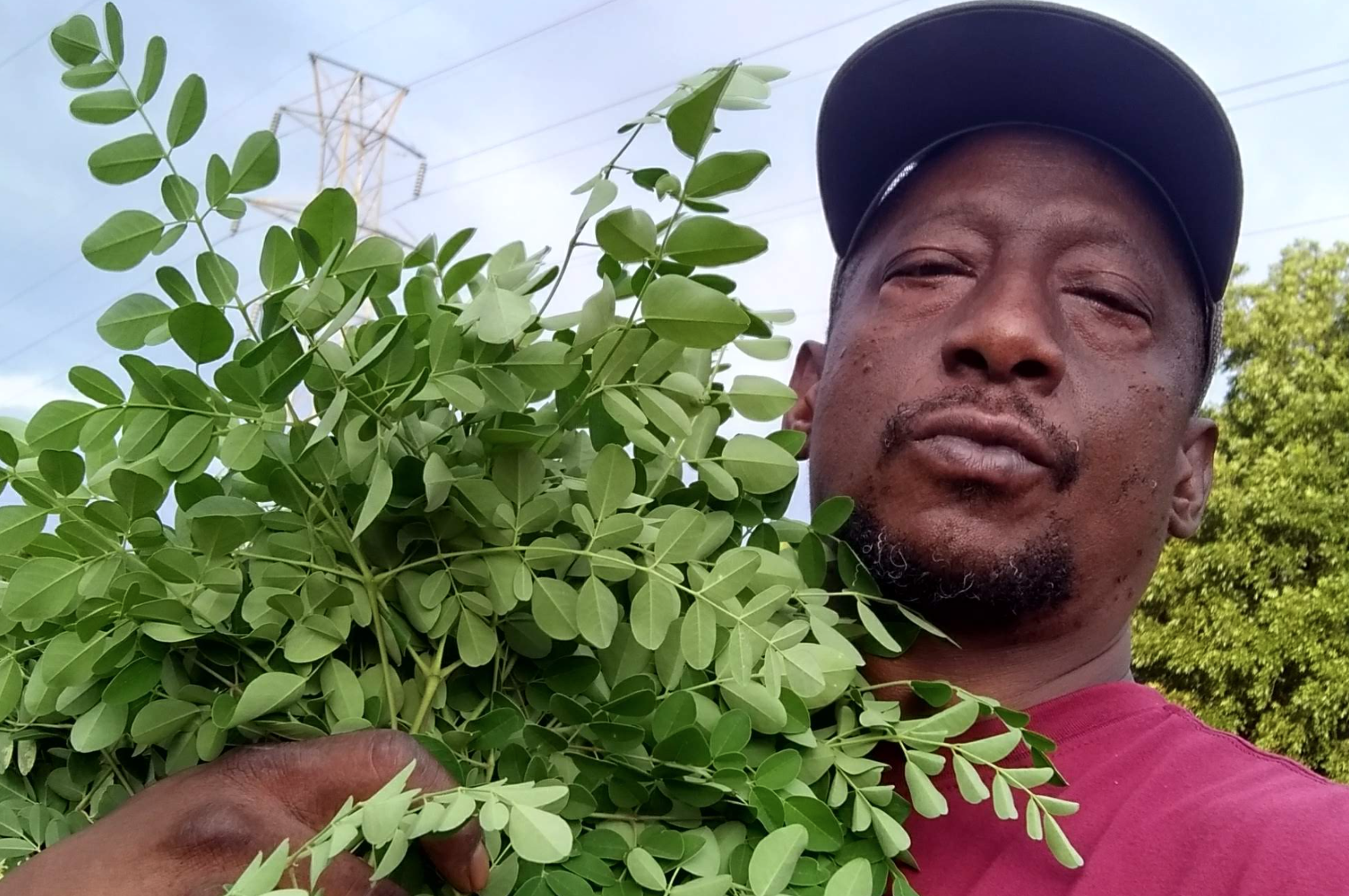
By Tonya Jameson
Bernard Singleton wants to remove the shame from farming, and to help more African Americans reconnect with the land that was once a place of life and death for African Americans, especially in the South.
Singleton, 55, is the founder of Nebedaye Farms and the Bennu Gardens Project. He has farms in Indian Trail and on Turner Avenue in west Charlotte. Along with traditional produce, Singleton is banking on cash crops such as indigo and the Moringa tree, which can be used as a plant-based protein, as well as ground for tea and spices. Singleton sees his farm projects as a way to address food insecurity in local communities.
“We’re growing a lot of the crops that were major cash crops during our dark times. We’re dealing with a lot of crops that were culturally significant from here and from Africa,” he said. “The whole theme of the place is to deal with a lot of the trauma surrounding farming for our people. All of us are scared to go back to the dirt, because of the negative history around farming. If we deal with the trauma and go back to the land, we can deal with a lot of those issues like food insecurity. Something we always had was food, no matter where we lived.”
For decades, African Americans were forced to work on plantations as slaves under torturous conditions, and later as sharecroppers. Millions of African Americans escaped the rural South for more lucrative opportunities in factories in the Midwest, West and Northeast.
Singleton started farming in Charleston with his late son, Ceasar, with less than an acre of land. The family grew fruit, vegetables and herbs. Since leaving Charleston, Singleton has traveled extensively, dabbling in art and farming, even if it was only a garden. He started in Charlotte in 2016 with two six by 12-foot raised beds in uptown Charlotte. He now has two locations on Tuckaseegee Road, which are production and medicinal herb gardens, and a half-acre on South Turner Avenue, which is a teaching garden. Last year, he acquired 11 acres in Indian Trail.
The Indian Trail location is where he is plotting his agricultural revolution. Along with the well-known plant indigo, used to make dyes, Singleton grows the lesser known Moringa tree, which is indigenous to Africa and parts of Asia. Singleton calls the tree nutritionally dense, and says the leaves can be processed to make protein powder, tea, medicines and a variety of other things. He -said he already has contracts with a few local restaurants, and hopes to expand to more this year.
His goal is to collaborate with other organizations to harvest, market and distribute food grown on the farms. He’s creating an “agri-hood,” which will include the tiny houses that are already on the Indian Trail site. Another element to his master plan is “agri-tourism,” and that is where farm-to-table is literally farm to table.
Organizations can schedule tours of the farm, pick produce and have it prepared in a meal onsite. In October, about 20 youths, ages 11-14, from the Queen City Chapter of Jack and Jill spent nearly four hours on the Indian Trail farm. They spread mulch, planted collards and discussed the history of farming. At the end of the day, the youths ate roasted sweet potatoes, collards and grilled vegetables harvested from the farm.
Trip organizer April McDonald said they chose the farm experience because the theme for October was healthy living.
“It was a really great event for us,” McDonald said. “We were glad to have not just the healthy living component, but to be able to add the historical component.”
McDonald said the trip gave her daughter a better appreciation of what her ancestors survived to provide for their families. McDonald was surprised that several of the youths said that they worked in their grandmothers’ gardens.
If the Jack and Jill participants are any indication of the broader African American community, Singleton may not need to help people get past the blood-soaked history associated with farming. His challenge will be to get more African Americans to embrace growing, instead of buying the food they eat.
